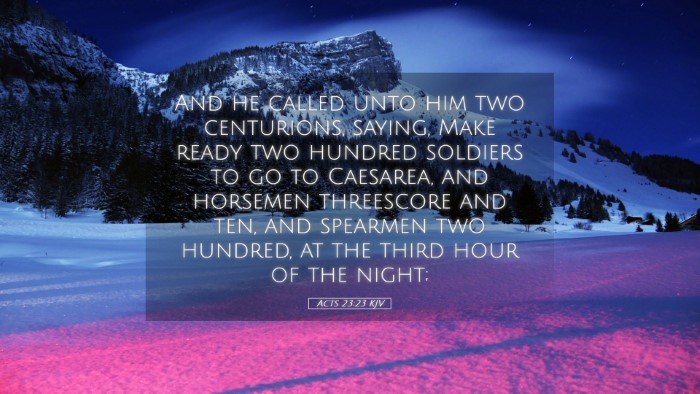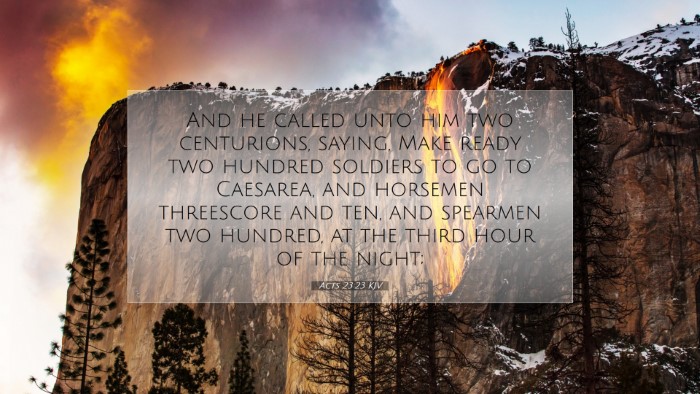Old Testament
Genesis Exodus Leviticus Numbers Deuteronomy Joshua Judges Ruth 1 Samuel 2 Samuel 1 Kings 2 Kings 1 Chronicles 2 Chronicles Ezra Nehemiah Esther Job Psalms Proverbs Ecclesiastes Song of Solomon Isaiah Jeremiah Lamentations Ezekiel Daniel Hosea Joel Amos Obadiah Jonah Micah Nahum Habakkuk Zephaniah Haggai Zechariah MalachiVerse
Acts 23:1 Acts 23:2 Acts 23:3 Acts 23:4 Acts 23:5 Acts 23:6 Acts 23:7 Acts 23:8 Acts 23:9 Acts 23:10 Acts 23:11 Acts 23:12 Acts 23:13 Acts 23:14 Acts 23:15 Acts 23:16 Acts 23:17 Acts 23:18 Acts 23:19 Acts 23:20 Acts 23:21 Acts 23:22 Acts 23:23 Acts 23:24 Acts 23:25 Acts 23:26 Acts 23:27 Acts 23:28 Acts 23:29 Acts 23:30 Acts 23:31 Acts 23:32 Acts 23:33 Acts 23:34 Acts 23:35

